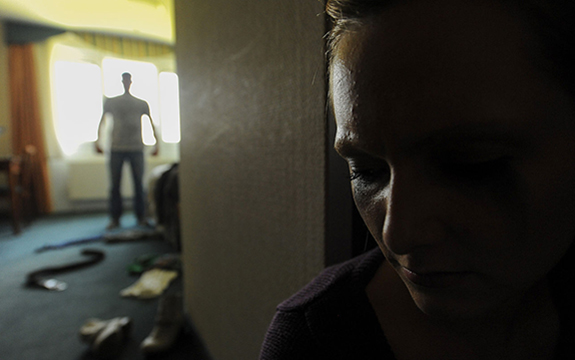Swinburne experts influence Royal Commission findings on family violence

In Summary
- ‘Safe-at-home’ schemes could dramatically reduce family violence, says Dr Angela Spinney
- Specialised services are needed to respond to the full range of family violence, says Professor James Ogloff
Swinburne researchers have played an important role in addressing family violence in Australia. Their submissions to the Royal Commission into Family Violence have influenced some of the Commission's recommendations, released this week.
Making home a safe place
Social researcher, Dr Angela Spinney, says ‘safe-at-home’ schemes could dramatically reduce family and domestic violence, the leading cause of homelessness in Victoria.
Dr Spinney praised the Royal Commission into Family Violence report, which called for the Victorian Government to give priority to supporting victims to safely remain in their own house and community.
In July 2015, Dr Spinney presented to the Royal Commission. She stressed the need for a safe-at-home program to be implemented. Such a program would include assistance from support agencies to help women and children to remain in their homes, with their violent abuser removed.
Her submission influenced recommendation 13 in the Royal Commission’s report.
“Often when a woman experiences domestic violence she is forced to flee the family home, leaving her and her children with nowhere to go,” Dr Spinney says.
“There are some refuges out there that can house women and children temporarily, but staying there is not like being safe at home.
“After leaving a refuge, women and their children often have to go through several further temporary house moves.”
Dr Spinney says safe-at-home schemes can cost less than providing refuges.
“Paired with the right justice interventions to keep violent perpetrators away and support services to help women to stay safely in their own home, then can be more affordable and less disruptive.
“Further measures could include installing motion sensor lights, stronger doors and secure letterboxes when necessary,” Dr Spinney says.
Understanding and responding to complex criminal behaviour
Swinburne’s Centre for Forensic Behavioural Science, in partnership with Forensicare, also made a submission to the Royal Commission, emphasising the need for the Victorian Government to better understand complex criminal behaviour. Psychologist and lawyer, Professor James Ogloff AM, was also invited to give evidence to the Royal Commission on two occasions.
Professor Ogloff welcomed recommendation 1 of the Royal Commission report, which the Centre for Forensic Behavioural Science largely influenced.
“Family violence is a broad phenomenon involving psychological, physical and sexual violence between partners, siblings, parents and children,” Professor Ogloff says.
“Despite this, the family violence service sector in Victoria responds almost exclusively to adult female victims and adult male perpetrators of partner violence. Family violence is multiply-determined and no one approach will address the problems.
“Therefore, specialised services are needed to respond to the full range of family violence victimisation or perpetration, not just intimate partner violence.”
Professor Ogloff says that as well as expanding service provisions, it is also necessary to better understand why people commit violent crimes.
“Different types of family violence and abuse frequently co-occur.
“Studies have shown that those who witnessed serious intimate partner violence as a child are seven times more likely to also have been physically abused or neglected themselves.
“This makes it necessary for any form of family violence to be routinely assessed for other types of violence. If this is done, families are more likely to receive proper intervention and assistance when they or a family member experience domestic violence.”

